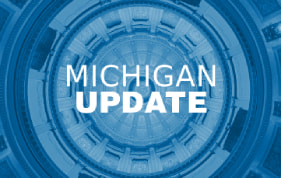This week our In Focus reviews Minnesota Department of Human Services (DHS) requests for proposals (RFPs) for two of the state’s Medicaid managed care programs: Minnesota Senior Health Options/Minnesota Senior Care Plus and Special Needs BasicCare/Integrated Special Needs BasicCare. Both RFPs, released on October 25, 2021, cover health care services in all 87 Minnesota counties.
1056 Results found.

Former DoD Health Official Joins HMA

HMA experts evaluate differences between Medicare Advantage and Fee-For-Service Medicare responses to the challenges of the COVID-19 pandemic
In a new report released by the Better Medicare Alliance (BMA), HMA colleagues Zach Gaumer and Elaine Henry concluded that the greater flexibility of the Medicare Advantage plan model enabled plans to offer providers additional support during 2020 that were not found within the Fee-For-Service (FFS) Medicare program. The report’s findings were previewed in a recent panel discussion during the BMA’s Medicare Advantage Summit.

Key takeaways from CMS Innovation Center strategy refresh
This week, our In Focus section shares HMA’s takeaways from the Centers for Medicare & Medicaid Services (CMS) white paper on the CMS Innovation Center Strategy Refresh: Driving Health System Transformation – A Strategy for the CMS Innovation Center’s Second Decade.

Webinar Replay: Veteran Medicaid Directors Discuss the Future of State Medicaid Programs
This webinar was held on November 8, 2021
Veteran Medicaid directors from Florida, South Dakota, and Idaho will provide a frank assessment of the many challenges, opportunities, and competing priorities facing state Medicaid leaders. Beth Kidder (Florida), Bill Snyder (South Dakota), and Matt Wimmer (Idaho) recently joined HMA after heading up state Medicaid programs during one of the most turbulent public health crises in a generation. The panel will be moderated by HMA Chief Operating Officer Chuck Milligan.
During this webinar, they shared their thoughts on how Medicaid directors will likely approach such pressing issues as successfully emerging from the public health emergency, assessing opportunities afforded by President Biden’s Build Back Better plan, and addressing looming challenges involving labor shortages, an impeding fiscal cliff, the future of pandemic-related regulatory flexibilities, and the growing role of home and community-based services (HCBS). Finally, they shared recommendations on how organizations can best maximize their effectiveness when meeting with state Medicaid directors by better understanding their world and what they need from various healthcare constituents like you.
Learning Objectives
- Understand the major trends and competing priorities facing state Medicaid leadership against a rapidly shifting local, state, and federal landscape.
- Find out what the “new normal” will look like for state Medicaid programs as they emerge from the public health emergency and wrestle with changes in enrollment, eligibility requirements, fiscal constraints, and the future of regulatory flexibilities installed during the pandemic.
- Learn how federal legislation and various state initiatives are driving dramatic changes in Medicaid, including expanded funding for HCBS, the success of telehealth services, expanded access to post-partum care, and the likely impact of the Build Back Better plan.
- Find out how to overcome growing workforce shortages and other challenges that are impacting the ability of Medicaid beneficiaries to access care, including emerging HCBS offerings.
- Learn how to maximize your effectiveness when meeting with state Medicaid representatives and how to uncover effective ways to partner with and support state Medicaid initiatives.
HMA Speakers
- Beth Kidder, Managing Principal, Tallahassee, FL
- Chuck Milligan, Chief Operating Officer (Moderator), Denver, CO
- Bill Snyder, Principal, Leavitt Partners, an HMA Company, Rapid City, SD
- Matt Wimmer, Principal, Denver, CO

National Council for Mental Wellbeing and HMA have partnered to create a three-part series that examines behavioral health workforce crisis
As demand for behavioral health services continues to grow, accelerated by the COVID-19 pandemic, staffing and workforce capacity to deliver services has not kept up with demand. In a three-part series of issue briefs, colleagues from Health Management Associates (HMA) and the National Council for Mental Wellbeing (the National Council) offer immediate steps states can take to increase capacity and build a more stable workforce.
The first brief in the series focuses on Policy, Financial Strategies and Regulatory Waivers, and outlines solutions that can be implemented quickly to reduce administrative burden and maximize existing provider resources.
Several HMA and the National Council colleagues, contributed to the briefs and surrounding research.

Highlights from 21st annual Kaiser/HMA 50-State Medicaid Director Survey
This week, our In Focus section reviews highlights and shares key takeaways from the 21st annual Medicaid Budget Survey conducted by The Kaiser Family Foundation (KFF) and Health Management Associates (HMA). Survey results were released on October 27, 2021, in two new reports: States Respond to COVID-19 Challenges but Also Take Advantage of New Opportunities to Address Long-Standing Issues: Results from a 50-State Medicaid Budget Survey for State Fiscal Years 2021 and 2022 and Medicaid Enrollment & Spending Growth: FY 2021 & 2022. The report was prepared by Kathleen Gifford, Aimee Lashbrook, and Sarah Barth from HMA; Mike Nardone; and by Elizabeth Hinton, Madeline Guth, Lina Stolyar, and Robin Rudowitz from the Kaiser Family Foundation. The survey was conducted in collaboration with the National Association of Medicaid Directors (NAMD).

Webinar Replay: The future of healthcare quality improvement
This webinar was held on November 2, 2021.
The future of quality improvement is continuously changing, especially within the clinical and member experience space. New and emerging technologies like Data Aggregator Validation (DAV) certification, Natural Language Processing (NLP), digital measurement, member engagement platforms, and new health disparities stratifications are entering the Medicare and Medicaid quality space at a growing rate. This webinar looked at trends in Medicare/Medicaid quality and addressed how new and emerging quality technologies are positioned to help organizations improve their quality scores at multiple levels.
Learning Objectives
- Find out how new and emerging quality concepts can be used to improve quality scores and better engage within the health plan and provider space.
- Learn how to take advantage of trends within the Medicare and Medicaid quality space to position your organization for success.
- Understand key factors impacting quality improvement scores such as HEDIS and CAHPS.
- Identify emerging technologies like DAV certification, NLP, digital measurement, new member engagement platforms, and new health disparities stratifications.
Speaker

